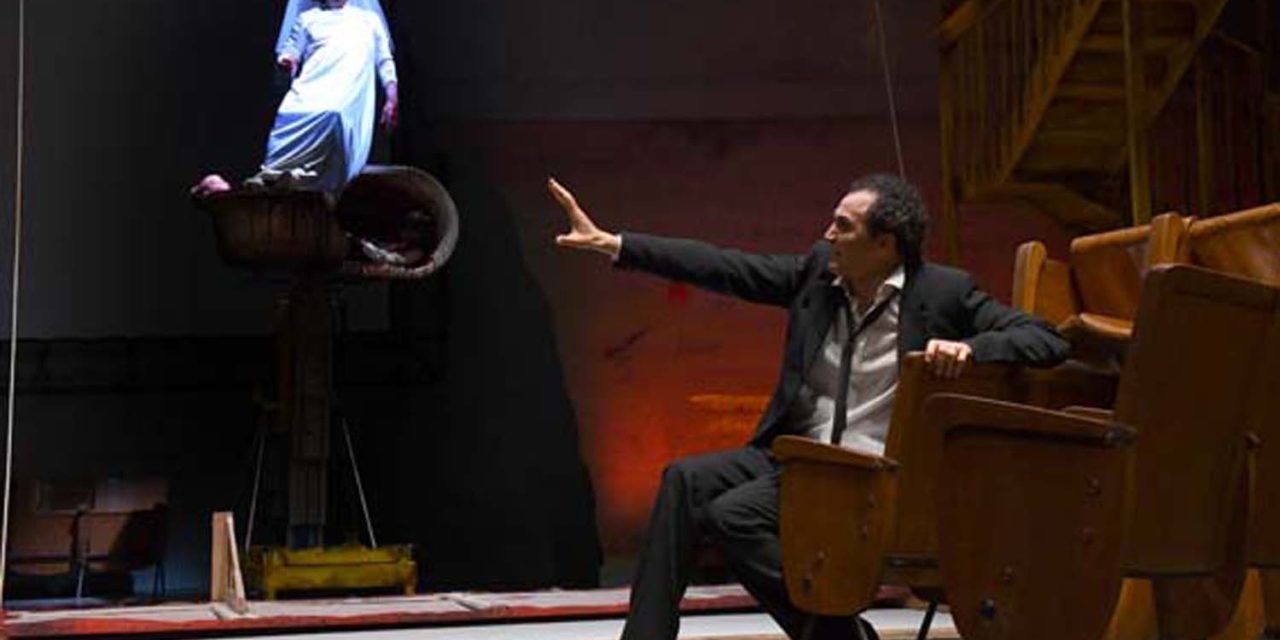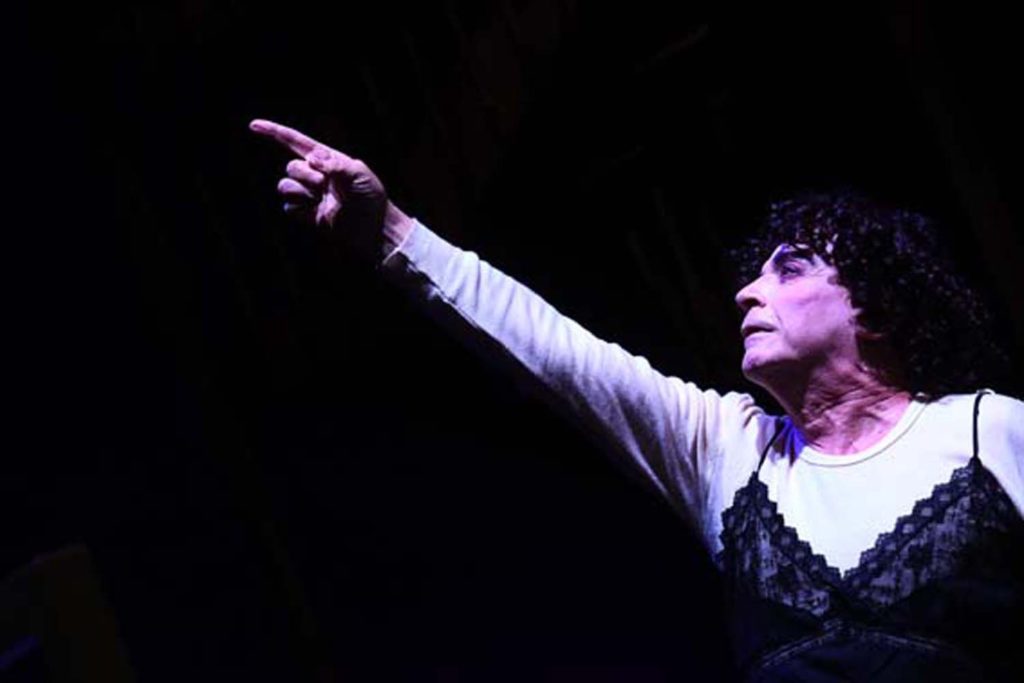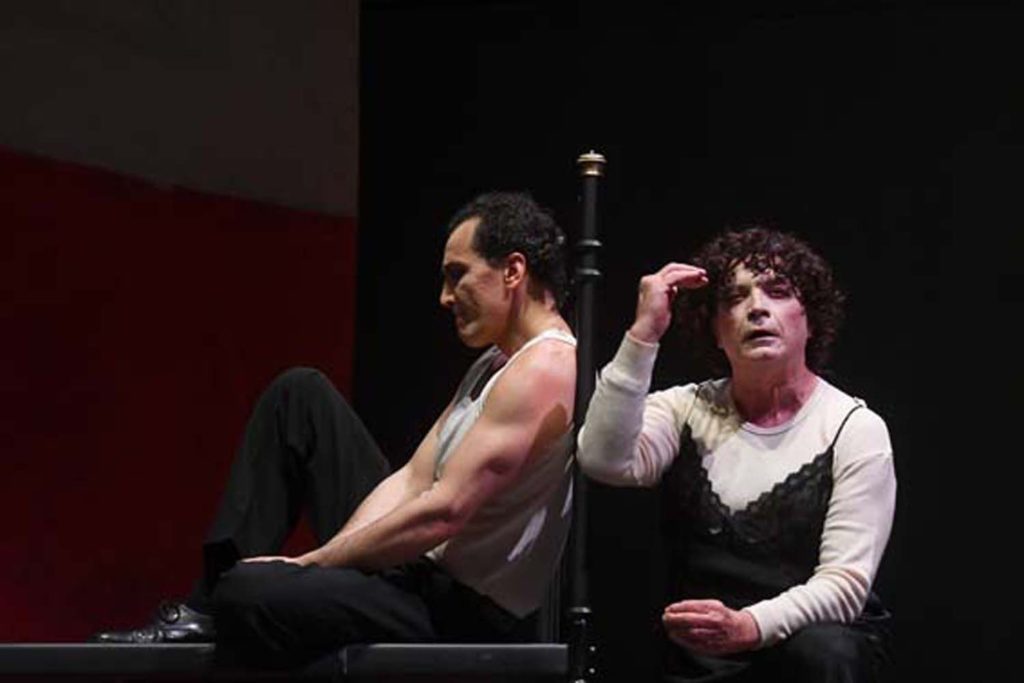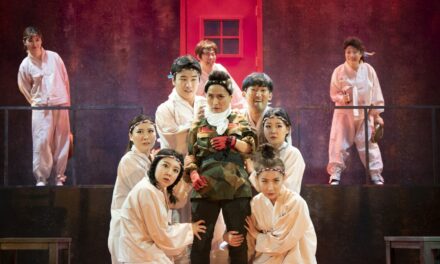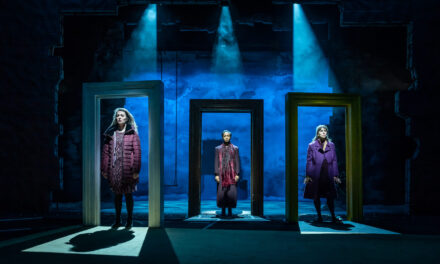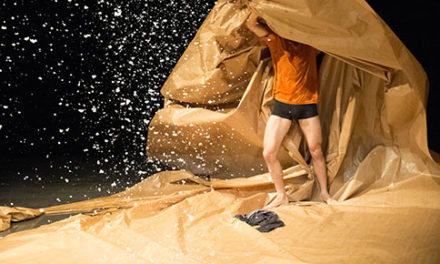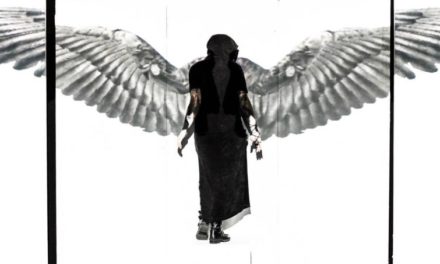Twenty years ago, on 13 December 1996, Euripides’ Medea debuted in Bergamo (Teatro Donizetti): for this staging, the great theatre master Luca Ronconi (1933–2015) revitalized the Greek myth with the actor Franco Branciaroli (born in 1947), revealing with true intensity the problems and contradictions of the main character. It was not a simple operation of acting en travesti but a complex transaction in which Medea lives – simultaneously – the potent feelings of a man, a woman, a monster.
Thanks to Ronconi’s refined direction and Branciaroli’s intense acting, this staging of Medea belongs to history, reaching the highest of emotional levels for contemporary theatre in Italy (it had more than 200 performances). Audiences were surprised by the work’s uniqueness, appreciating the main character’s daring game in the tragic expression of the idea of killing her two sons. Also, the ideas of marriage and motherhood in Euripides’ play were never misunderstood: Branciaroli showed his cleverness as an absolute leader on the stage, maintaining a dramatic tension which was always far from the grotesque. His physical attitude and the magnetic tone of his voice demonstrated the multiple “masks” of Medea, a monster who used her masculine strength to exact revenge on her husband and her feminine gracefulness to persuade the chorus of women of Corinth of her mad purpose.
After twenty years, Franco Branciaroli has re-created Medea as a personal homage to Luca Ronconi, in a co-production with Centro Teatrale Bresciano, Teatro degli Incamminati and Piccolo Teatro, and again using the translation by Umberto Albini (1923–2011). The debut took place in Brescia (Teatro Sociale) on 9 May 2017, a brilliant conclusion to the 2016/17 season.
In Euripides’ play, Medea is compared to the great forces of nature and has magic powers: she is not a “normal” woman and is able to manipulate the people around her. She is dominated by animal-like instincts, and her behavior is “uncommon” for a wife or a mother. With his acting, Franco Branciaroli underlines the most relevant trait of this character: the deception. Finally, the wounds of her soul created by the betrayal of her husband, Jason (the actor Alfonso Veneroso), are transformed into wounds of the flesh with the murder of her two sons (the actors Matteo Bisegna and Raffaele Bisegna).
Franco Branciaroli speaks about Medea.
On the stage, Medea is alone with her desperation. The consequences of her sanguine temperament are the total destruction of her family and her irrevocable condemnation to eternal loneliness. She symbolizes the annihilation of bridal and maternal feelings; the dark side of her soul is the only – terrific – vital element that remains.
Twenty years later, Franco Branciaroli confirms the greatness of this staging, opening a new chapter of the fortune of Euripides’ play in the new millennium. The legacy of Luca Ronconi continues to fascinate audiences, with the original vision of a classical myth and its paradoxes.
Official website: www.lucaronconi.it
This post was written by the author in their personal capacity.The opinions expressed in this article are the author’s own and do not reflect the view of The Theatre Times, their staff or collaborators.
This post was written by Maria Pia Pagani.
The views expressed here belong to the author and do not necessarily reflect our views and opinions.

